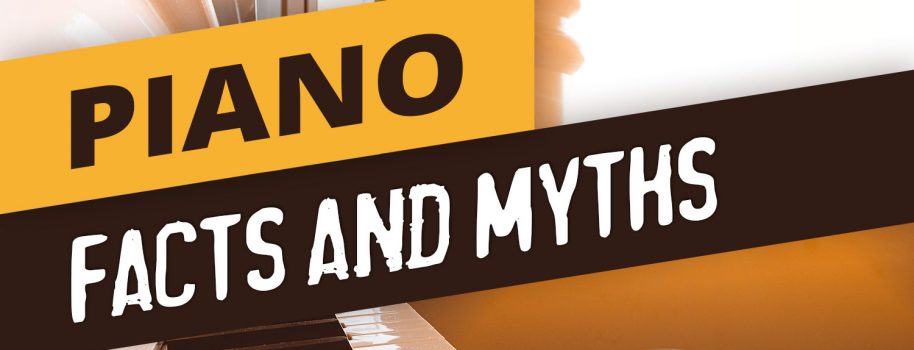The piano is one of the most fascinating musical instruments in the world. There are so many stories connected with it, both true and absurd, that we decided to make a list. These are the most interesting facts and myths about the piano that you might not know! Can a jar of water replace a humidifier? How often should I tune the piano if I do not play it? This information about pianos is great to share with your children, friends, family, music class or just know for yourself, as befits a true piano-freak.
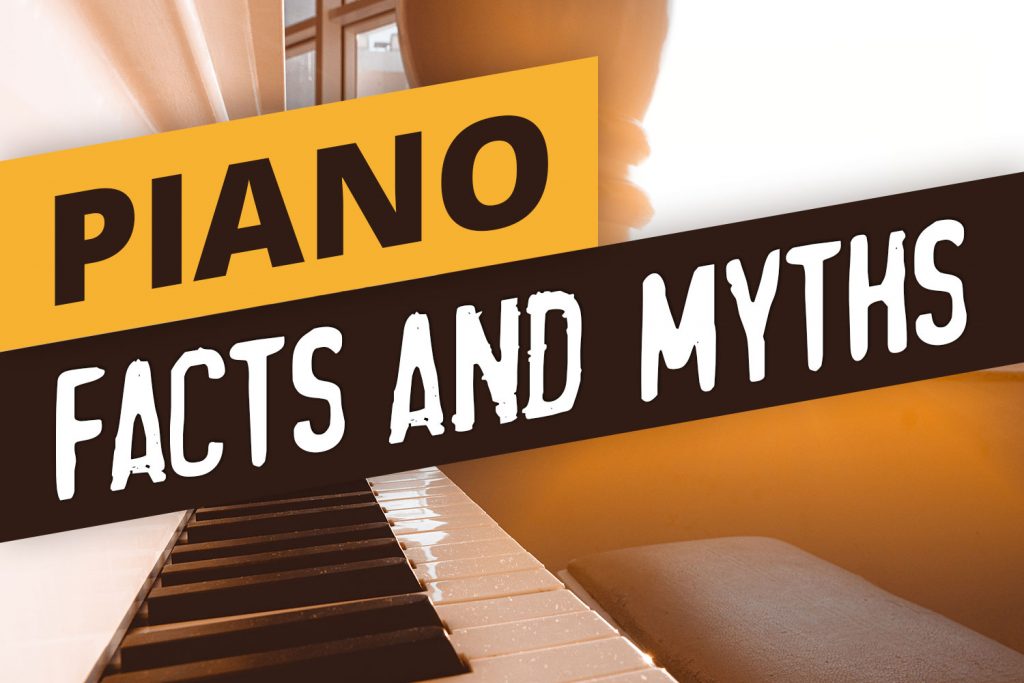
1. A dish of water placed in the piano will keep humidity at an appropriate level
The ideal humidity for a piano, as suggested by manufacturers, should be between 42% and 65%. It is best achieved by using appropriate humidifiers and dehumidifiers and a piano humidity control system. Among humidifiers available on the market you should choose one adjusted to the size of the room where the instrument is placed. Such humidifiers can absorb up to approx. 8 litres of water per day in dry rooms. Before they were in common use the correct humidity of a piano in rooms that were too dry was tried to be achieved by putting a container with water inside. This water was replenished from time to time depending on how much the instrument ‘drank’. Nowadays we absolutely do not recommend such solutions!
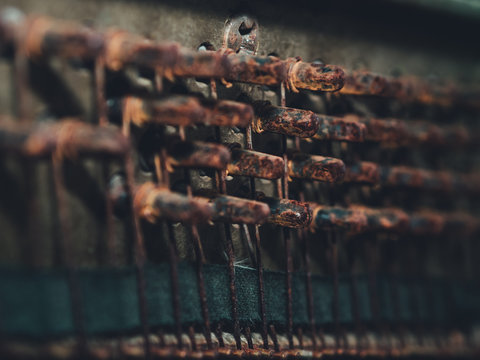
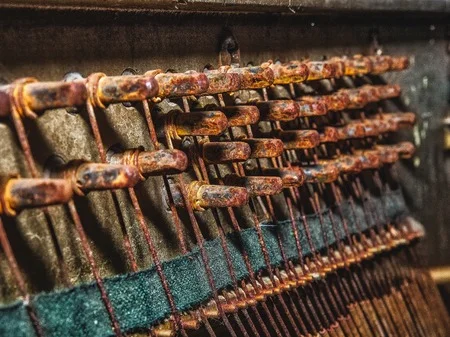
A container of water left in the piano can cause the strings to rust and the resonance to break.
2. Larger pianos sound better
Yes, but what is more important is the scale of the instrument, the quality of the materials from which it is made and the solidity of the piano itself. The size (i.e. the height of the piano or the length of the piano) will not matter as much if the instrument does not meet the conditions mentioned above.
3. I don’t have to tune a piano if nobody plays it / You only have to tune a piano once in your life
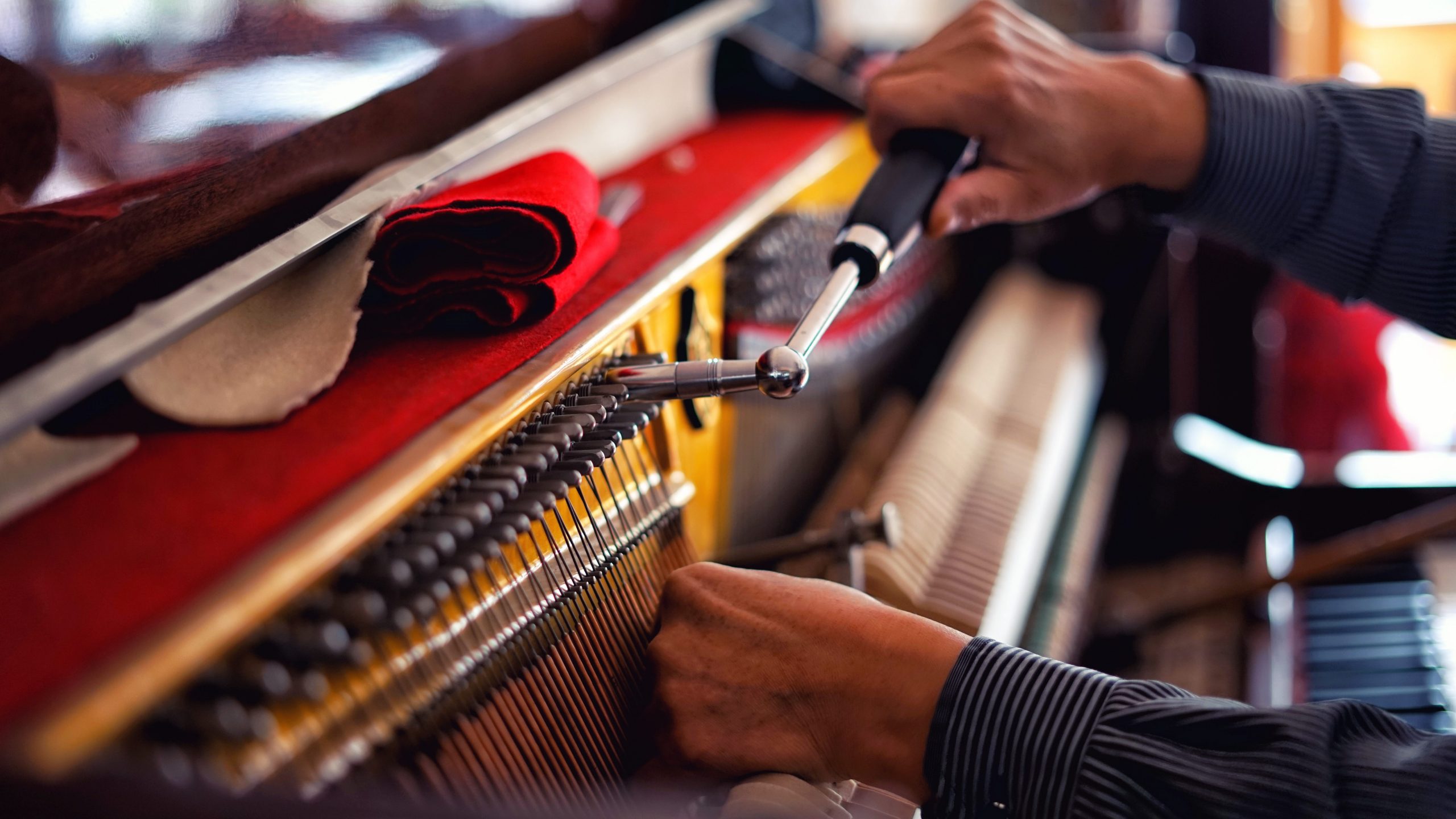
How often should I tune my piano? No matter how often you play your piano it needs tuning, at least once a year. As the seasons change, so does the temperature and humidity, and these two factors cause the piano to become out of tune, whether you play it regularly or not. If we give up tuning our instrument regularly (because no one plays it anyway) then gradually its sound will become flatter and flatter, to the point where playing it will cause earache. To restore such a neglected piano to a normal state, it will require more than one tuning or it may even need other repair work. How long does it take to tune a piano? How often tune an old piano? These and other tuning questions are answered in our article.
4. The piano can’t stand next to a radiator
Traditional pianos are mainly made of wood, which makes them particularly sensitive to changes in weather conditions. If you live in a place with cold winters, your instrument should be in a heated room. However, putting them right next to a radiator can be deadly for them. After a few years of standing next to a radiator, the piano will be completely dried out and the wood is often cracked. Renovation of such an instrument will therefore be quite expensive. The minimum distance of the piano from a source of heat (cooker, radiator, sun) is 1.5 m.
5. Old pianos are better than new pianos
Yes and no. But from the outset, upright and grand pianos reach their highest performance within the first 10 years of their life, plus they last longer. In addition, the new instruments have a more modern design which allows them to play “everything”. From Bach to Offenbach, through Chopin, Liszt to Rachmaninov, Ravel etc. However, if we care about the authenticity of the interpretation of the piece, such a modern “universal” piano may not work. Each form of piano construction determines the choice of music to be performed on such a piano. Nowadays, the importance of authentic and atmospheric performance is constantly increasing. But unfortunately this is not reflected in the degree of preservation of historic pianos, which sometimes require specialist restoration.
6. Steinway produces the best pianos
Steinway & Sons is a very popular piano manufacturer, known worldwide for its quality and long history. However, there are several other piano companies that match the quality of Steinway pianos. Bösendorfer, C. Bechstein, Fazioli, Blüthner and Mason & Hamlin are all top class pianos that can boast about their history just as much as Steinway. When buying an upright or grand piano, you should be guided primarily by the sound of the instrument and your personal preferences and feelings, and not by the pressure of the brand!
7. The piano frame is made of gold

Unfortunately not. Both upright and grand pianos have very strong metal frames (usually cast iron) lacquered in the appropriate colour. Usually a particular brand has its own distinctive frame colour. This is all to withstand the tension of about 225 strings, which can be as much as 20 tons! A gold frame would not be able to cope with that. 😉
You may be interested in other themes:
Do you know any other interesting or unbelievable piano-related stories? Share them with others in the comments.


